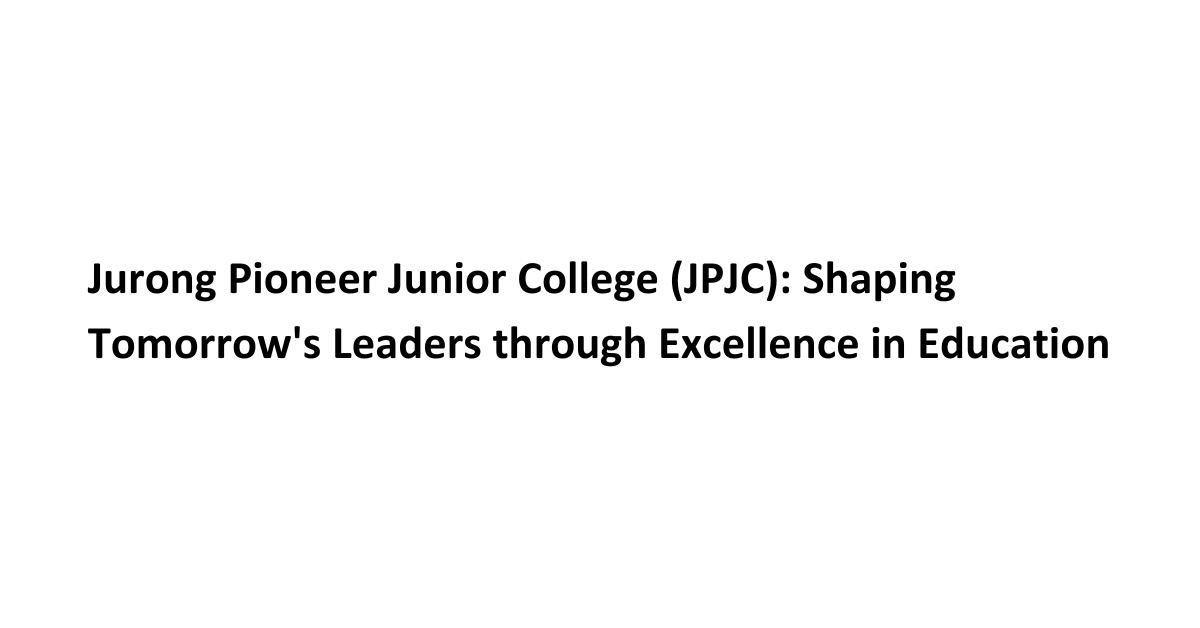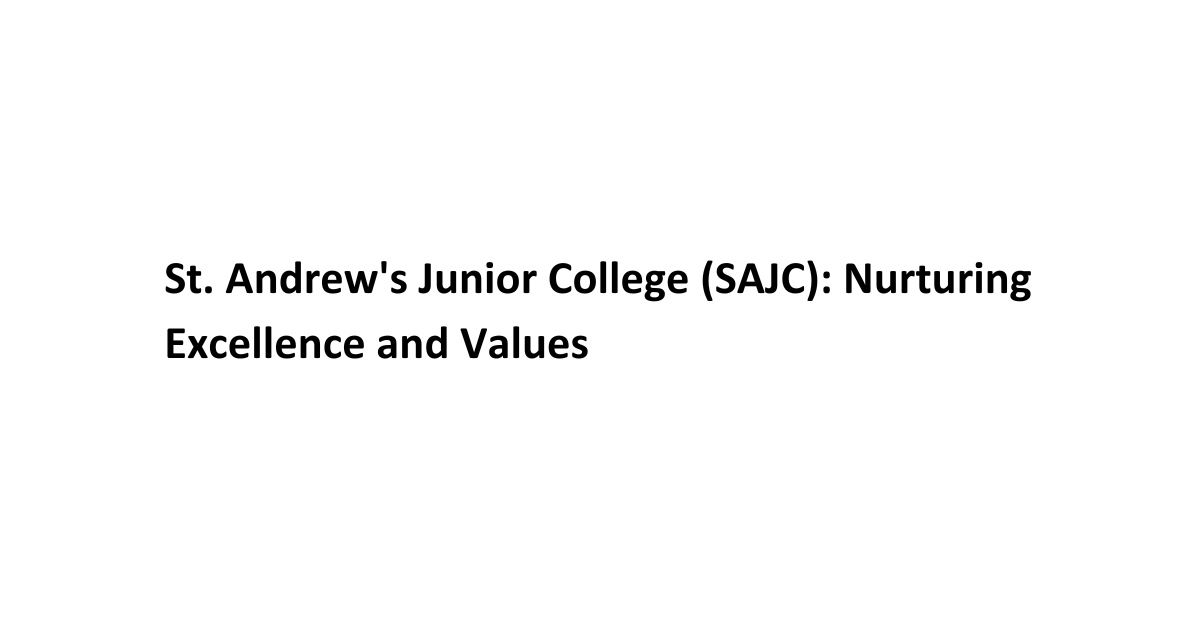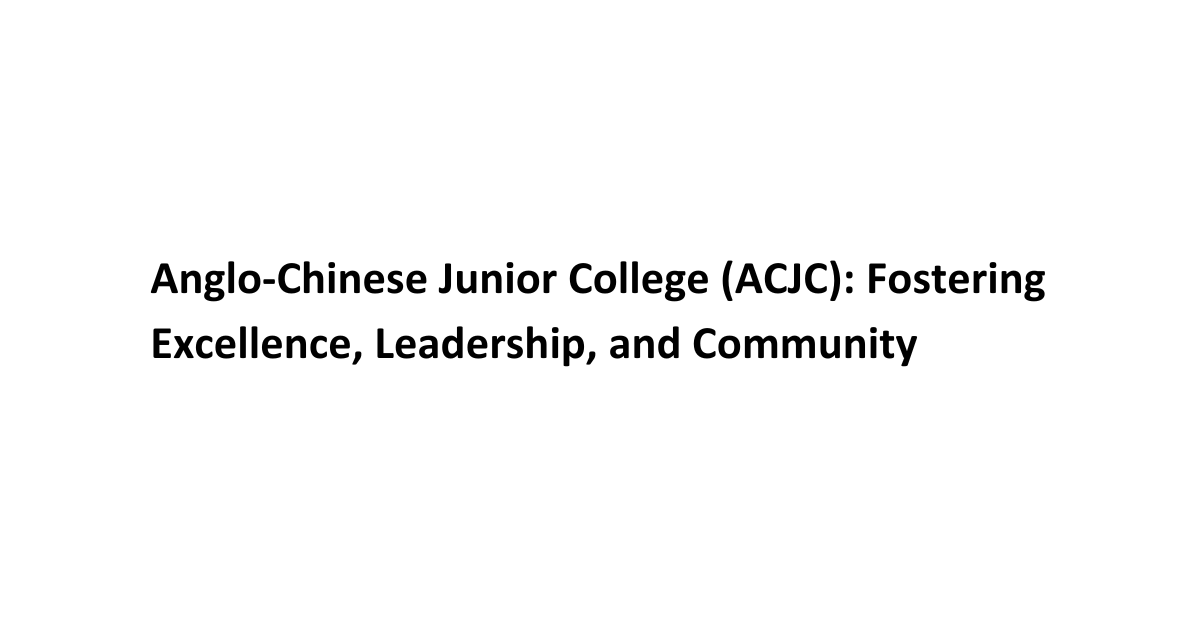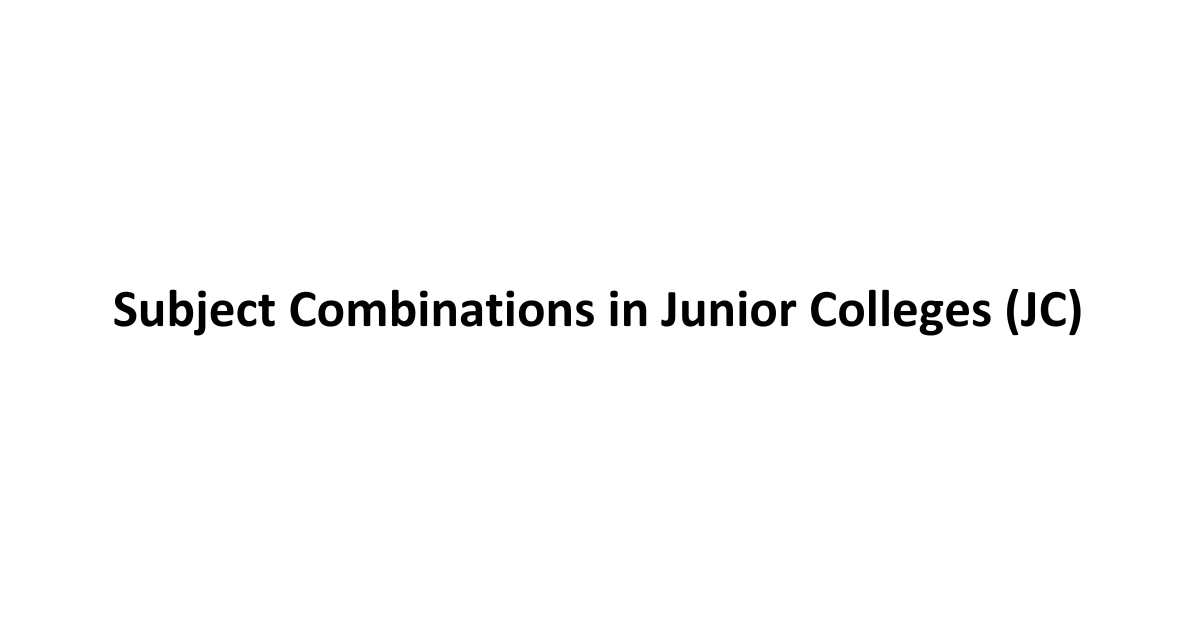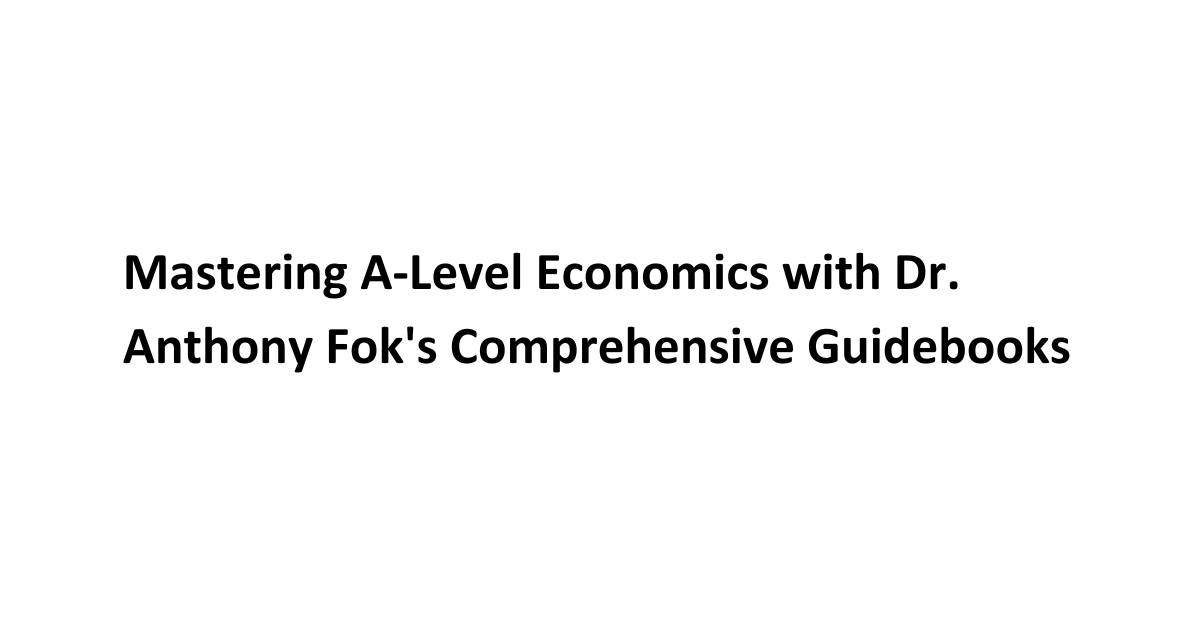19 Oct Jurong Pioneer Junior College (JPJC): Shaping Tomorrow’s Leaders through Excellence in Education
Jurong Pioneer Junior College (JPJC) is a distinguished educational institution in Singapore, recognized for its commitment to academic excellence, character development, and the holistic growth of its students. With a focus on nurturing future leaders and promoting community engagement, JPJC stands as a beacon of inspiration for students seeking a transformative educational journey. In this blog article, we will explore the unique qualities and offerings that define JPJC as a leading junior college in Singapore.
A Tradition of Excellence:
Established in 2019, JPJC has swiftly made its mark in Singapore’s education landscape. The college is dedicated to fostering academic excellence, providing students with the tools and opportunities to excel in their chosen fields. JPJC offers a wide range of subjects, including arts, sciences, and commerce, to cater to the diverse interests and talents of its student body.
Holistic Education:
JPJC believes in the importance of holistic education. While academic achievements are highly regarded, the college also places a strong emphasis on character development and personal growth. Students have access to a wide array of co-curricular activities, allowing them to explore their passions, develop leadership skills, and build lifelong friendships.
Values-Centric Learning:
At the core of JPJC’s educational philosophy is a commitment to values-centric learning. The college instills in its students the significance of values such as integrity, respect, and empathy. JPJC believes that character development is instrumental in nurturing responsible and compassionate individuals who can make a positive impact on society.
Leadership Development:
JPJC is dedicated to cultivating future leaders. The college offers various leadership programs, seminars, and opportunities that empower students to take on leadership roles within the institution and beyond. Leadership skills are seen as vital for bringing about positive change and progress.
Global Perspectives:
JPJC understands the importance of a global perspective in today’s interconnected world. The college encourages students to embrace diversity and multiculturalism, preparing them to address global challenges. JPJC often collaborates with international institutions and offers exchange programs, giving students opportunities to experience different cultures and broaden their horizons.
Community Engagement:
JPJC places a strong emphasis on community engagement. The college inspires students to contribute to society through community service initiatives. These programs aim to develop a sense of social responsibility and a commitment to improving the lives of others.
Caring and Supportive Community:
The JPJC community is known for its warmth and inclusiveness. Teachers, staff, and alumni play an integral role in creating a supportive and nurturing environment for students. The close-knit JPJC family fosters a positive and enriching college experience.
Campus and Facilities:
JPJC boasts a modern campus equipped with state-of-the-art facilities. These include well-appointed classrooms, laboratories, libraries, sports amenities, and spaces for co-curricular activities. The college offers students a conducive learning environment to thrive academically and personally.
Innovation and Research:
JPJC encourages innovation and research, fostering a culture of inquiry and curiosity among its students. The college supports research projects and initiatives that allow students to delve deeper into their academic interests.
Conclusion:
Jurong Pioneer Junior College (JPJC) is not just an institution of learning; it is a hub of excellence, leadership, and community engagement. With its strong commitment to academic rigor, values-centric education, and holistic development, JPJC continues to produce graduates who excel academically and contribute positively to society. As JPJC looks to the future, it remains dedicated to its mission of shaping the leaders of tomorrow and inspiring a community of lifelong learners who will make a meaningful impact in their chosen paths.



